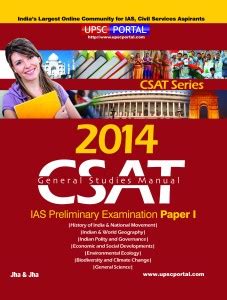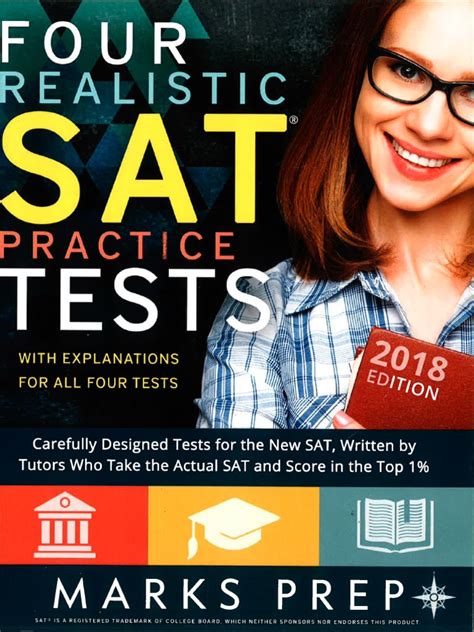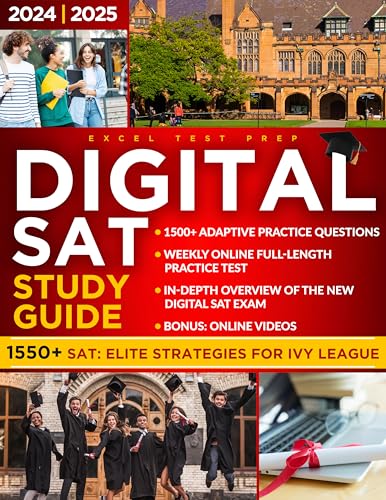Mastering the art of test-taking is crucial for academic success, and efficient time management plays a pivotal role in achieving this. In this article, we’ll explore proven strategies and techniques to optimize your study time and enhance exam performance. From setting clear study goals and creating a structured schedule to employing active learning methods and managing test anxiety, we’ll cover essential tips for effective preparation. Additionally, we’ll delve into strategies tailored to various exam formats, the importance of rest and nutrition, and how to learn from past tests. By following these insights, you can boost your confidence and excel in your exams.
hotigames.com will explore this topic comprehensively.
1. Importance of Time Management in Test Preparation
Effective time management is a cornerstone of successful test preparation. With a well-structured plan, students can ensure they cover all necessary material without feeling overwhelmed. Proper time management allows you to allocate specific periods for studying different subjects or topics, which helps in maintaining focus and preventing last-minute cramming. By breaking down study sessions into manageable chunks, you enhance retention and understanding, making your study time more productive.
Additionally, managing your study time effectively helps in balancing academic responsibilities with other commitments, reducing stress and improving overall well-being. It also provides a clear roadmap for tracking progress and adjusting strategies as needed. Without a strategic approach to time management, students may find themselves struggling with incomplete study plans and inadequate preparation. Prioritizing and scheduling study sessions ensures that every topic receives adequate attention, leading to a more comprehensive understanding of the material. In essence, mastering time management not only prepares you for the test but also builds habits that contribute to long-term academic success.

2. Setting Clear Study Goals and Prioritizing Tasks
Setting clear study goals and prioritizing tasks are essential steps in effective test preparation. Start by defining specific, measurable objectives for each study session. For instance, aim to cover particular chapters or practice a set number of problems each day. This clarity helps focus your efforts and provides a sense of accomplishment as you progress.
Prioritizing tasks involves identifying which subjects or topics require more attention based on their complexity or your level of familiarity. Allocate more time to challenging areas while ensuring that all subjects are addressed. Using a priority list or a study planner can help you stay organized and manage your time effectively.
Breaking down larger goals into smaller, manageable tasks makes the study process less daunting and more

3. Developing a Study Schedule That Maximizes Efficiency
Creating a study schedule that maximizes efficiency involves organizing your study time strategically to cover all necessary material effectively. Begin by assessing the total time available before the exam and dividing it into study blocks. Allocate specific times for each subject or topic based on its importance and your familiarity with it.
Incorporate regular breaks to avoid burnout and maintain focus. For example, use the Pomodoro Technique—study for 25 minutes, then take a 5-minute break. This method enhances concentration and prevents fatigue.
Additionally, integrate varied study methods to keep sessions engaging and productive. Rotate between reading, summarizing, and practicing problems to reinforce learning. Ensure that your schedule includes time for revision and mock tests to gauge your progress and adjust your study plan accordingly.
Flexibility is key; be prepared to modify your schedule as needed based on your progress and any emerging challenges. A well-balanced, adaptive study schedule not only boosts efficiency but also enhances overall exam performance.

4. Active Learning Techniques for Better Retention
Active learning techniques are crucial for improving retention and understanding of study material. Instead of passively reading or highlighting, engage with the content through interactive methods. One effective technique is summarizing information in your own words, which reinforces comprehension and helps identify key concepts.
Another valuable approach is teaching the material to someone else. Explaining concepts aloud or discussing them with peers forces you to clarify your understanding and solidify your knowledge. Practice testing, or self-quizzing, is also highly effective. Regularly testing yourself on the material helps reinforce memory and highlights areas that need further review.
Incorporate visual aids like charts, diagrams, or mind maps to organize information and make complex concepts easier to grasp. Combining these techniques with regular review sessions ensures that the material is deeply embedded in your memory, leading to better performance on exams.
5. Practicing with Past Exams and Mock Tests
Practicing with past exams and mock tests is a powerful strategy for test preparation. These practice tests familiarize you with the exam format, question types, and time constraints, helping reduce test anxiety and build confidence. By simulating real test conditions, you can identify areas where you need further study and adjust your preparation accordingly.
Start by reviewing past exam papers and official mock tests related to your subject. Analyze the questions to understand the common themes and frequently tested concepts. This insight allows you to focus your study efforts on the most relevant material.
Timed practice sessions are particularly beneficial, as they help you manage your time effectively during the actual exam. Regularly incorporating these practice tests into your study routine can also improve your ability to recall information under pressure and enhance overall test performance. Remember to review your answers thoroughly to learn from mistakes and refine your strategies.
6. Managing Test Anxiety and Staying Focused
Managing test anxiety and staying focused are crucial for optimal exam performance. Begin by developing relaxation techniques such as deep breathing exercises or mindfulness meditation to calm your nerves before and during the exam. Regular practice of these techniques can reduce anxiety and improve focus.
Create a positive study environment that minimizes distractions and fosters concentration. Organize your study space, eliminate interruptions, and use tools like noise-canceling headphones if needed. Setting realistic goals and breaking study sessions into manageable chunks can also alleviate stress and make the process more manageable.
On exam day, maintain a steady routine with adequate rest and nutrition to keep your mind sharp. Approach the exam with confidence by recalling your thorough preparation and practice. If you start to feel anxious during the test, use brief relaxation techniques to regain focus and continue with a clear, calm mindset.
7. Effective Test-Taking Strategies for Different Exam Formats
Effective test-taking strategies vary depending on the format of the exam. For multiple-choice questions, read each question carefully and eliminate obviously incorrect answers first. If unsure, use the process of elimination to improve your chances of selecting the correct answer. Pay attention to qualifiers such as “always” or “never” that can help pinpoint the right choice.
In essay exams, carefully read the prompts and outline your response before you begin writing. Ensure that your answer is structured with a clear introduction, body, and conclusion. Stay on topic and support your arguments with specific examples or evidence.
For problem-solving or mathematical tests, work through problems methodically, showing all steps to ensure clarity and accuracy. Double-check your calculations and ensure that your final answers are properly labeled.
Adapt your strategy to the format by understanding the types of questions and preparing accordingly. This tailored approach helps you tackle each exam format effectiv
8. Importance of Rest and Proper Nutrition Before the Exam
Rest and proper nutrition are critical for peak performance on exam day. Adequate sleep before the exam is essential for cognitive function, memory consolidation, and overall mental clarity. Aim for 7-9 hours of quality sleep each night leading up to the test to ensure that your brain is well-rested and ready to tackle challenging questions.
Proper nutrition also plays a key role in maintaining focus and energy levels. Eat balanced meals that include complex carbohydrates, proteins, and healthy fats to sustain energy throughout the day. Avoid heavy or greasy foods that can cause discomfort or sluggishness. Instead, opt for brain-boosting foods like fruits, vegetables, nuts, and whole grains.
Hydration is equally important. Drink plenty of water to keep your brain functioning optimally and to avoid dehydration, which can negatively impact concentration and cognitive abilities. On the day of the exam, have a light, nutritious breakfast to fuel your mind and body.
By prioritizing rest and nutrition, you can enhance your mental acuity, reduce stress, and improve overall exam performance. These practices ensure that you are physically and mentally prepared to face the exam with confidence.
9. Reviewing and Revising Key Concepts Before the Test
Reviewing and revising key concepts before the test is crucial for reinforcing your understanding and ensuring you’re well-prepared. Begin your review by focusing on the core topics and concepts that are most likely to appear on the exam. Use your study materials, notes, and summaries to revisit these key areas.
Create a revision plan that allocates time for each subject based on its importance and your familiarity with it. Utilize active recall techniques, such as flashcards or practice questions, to test your knowledge and identify areas needing further review. Summarize complex information into concise notes or diagrams to make the material more digestible and easier to remember.
Incorporate group study sessions if possible, as discussing concepts with peers can provide new insights and reinforce your understanding. Make sure to review any feedback or mistakes from past exams or practice tests to avoid repeating them.
Finally, ensure that your revision is well-timed—avoid cramming the night before the exam. Instead, plan a comprehensive review well in advance, allowing time to absorb and solidify your knowledge. This structured approach helps improve retention and boosts confidence, leading to better performance on exam day.
10. Post-Test Analysis: Learning from Mistakes and Planning for Impro
Post-test analysis is essential for continuous improvement and effective learning. After the exam, take the time to review your performance by analyzing the mistakes you made. Start by going through the test questions and identifying where you went wrong. Understand the reasons behind each error—whether they were due to misinterpretation, lack of knowledge, or careless mistakes.
Review any feedback or comments provided by the instructor to gain insights into areas that need improvement. Use this information to adjust your study methods and focus on the topics that proved challenging. Reflect on your test-taking strategies and time management to determine what worked well and what could be improved.
Planning for improvement involves setting specific goals for your next study sessions based on this analysis. Develop a revised study plan that addresses the identified weaknesses and incorporates effective strategies. By learning from past mistakes and making targeted improvements, you can enhance your test preparation and performance in future exams. This reflective proce
Mastering test-taking requires a blend of effective time management, strategic study techniques, and proper self-care. By setting clear goals, developing a structured study schedule, and employing active learning methods, you can optimize your preparation. Additionally, practicing with past exams, managing anxiety, and ensuring rest and nutrition contribute to peak performance. Reflecting on your results and planning for improvement will further enhance your exam success.
hotigames.com
